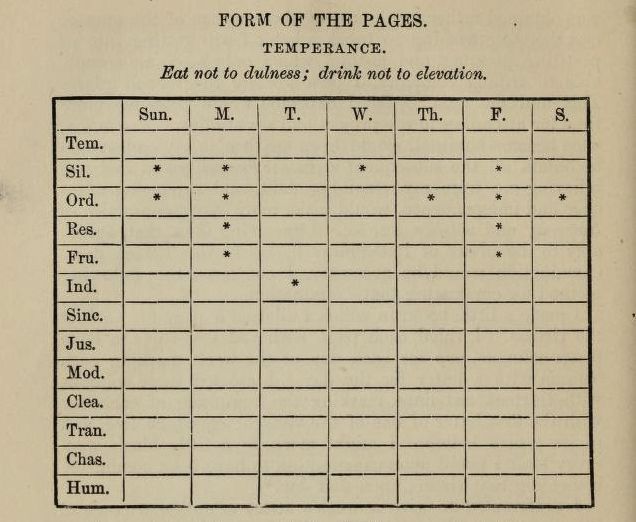Do you love to see things grow and blossom? Your kids? Your puppy? Your Christmas amaryllis? Your spring flowers? Your summer veggies? Your piles of paper? Say what? What was that last one – paper? No!
If you’re like many of the people I work with, paper is not your thing. You didn’t ask for so much mail, you don’t know what to keep vs. what to discard and you don’t enjoy processing it. I’m going to help you reframe the way you look at paper by comparing paper management to gardening. Stay with me here! It might be more motivational than you think.
So, what are some of the components of both gardening and paper management?
PLANNING
When planning a flower garden, consider color schemes, the timing of the blooms, the height of the plants, etc.
Create a plan for where to place paper, i.e. unopened mail, papers to be acted on, papers to be filed, papers going out of the house, etc.
PREVENTION
Perhaps you use Round Up to prevent weeds (an ounce of prevention is worth a pound of cure).
To prevent unwanted and junk mail, sign up using an online service, such as dmachoice.org (an ounce of prevention is worth a pound of MAIL).
MAINTENANCE
When gardening, you periodically fertilize, weed, dead-head the flowers, and of course cut the flowers for indoor appreciation.
Establish daily, weekly and monthly routines to open the mail, address action items, pay bills, file, read, etc.
STORAGE
You’ve dedicated a place where you store your pots, tools, soil, etc. for easy access.
Use file cabinets or file boxes to store reference papers and keep papers you need to act upon on your desk.
END OF SEASON CLEAN UP
Gardens get ‘put to bed’ in the autumn by cutting back plants, etc.
Purge your files annually. The best time is when you’re gathering papers for income tax. Shred paid invoices you don’t need for taxes and make room for a new year.
I wish you much success in your garden and office. KEEP UP in order to thrive and blossom!
NAPO Member, Lauren Mang shares her experience working with a treasured client and how a turn toward Buddhism immersed them in the power and liberation of being present:
I’ve had the pleasure of working with some really wonderful clients, but Katherine really stood out. She worked for years as a successful biochemical scientist and had a lot of wonderful things. After years of this lifestyle, Katherine sought real change. She turned to Buddhism and began not only practicing but teaching it.
Over three sessions, Katherine and I worked together to clear and review items within her condo. Some items Katherine had no attachment to, so the decisions were quick and easy. I was pleasantly surprised when Katherine agreed to let go of 75% of her items.
What I admired most about Katherine was how she handled
items from her ‘past’ life. With each, she’d have same reaction: take a breath, smile, and quietly exclaim, “Wow!” She’d hold the items for a moment, acknowledge their importance and the purpose they served, and then quietly say, “This is a part of my past. I’m ready to let it go.”
Katherine was so immersed in the now that fear and anxiety were not clouding her judgment of materialistic belongings. I said to her, “Katherine, you’ve let go of most of your shoes. Are you sure you don’t want to keep a pair for an evening out?” She thought for a moment before responding, “I think I’d like to treat myself to a new pair.”
Living in the present allows us to realize what we need in the moment. We are not left asking, “What if I need it in two years?” or “What if I finally lose the weight?” The simple answer is, you might not need it in two years (if you do, buy it). Or if you lose the weight, reward yourself with new clothes that you feel great in.
We don’t know what the future will hold, but the universe is ready and willing to provide what you need right now, just lean in. This means letting go of fear of the future, or anxiety/uncertainty over the past. Live in this moment, right now, and watch life become clearer and simple.
Starting my Professional Organizing business was one of the smartest moves I’ve ever made. It has given me the opportunity to travel to many different neighborhoods in the Tri-State area and then some; traveling to NY City and to Winston Salem. Once a month I find myself across the street from the beautiful Philly Art Museum and, at other times, right across from City Hall.

Meeting people from all walks of life, in diverse living arrangements and hearing their stories has been a gift to me. My clients include healers, artist, nurses, psychologist, equestrians, entrepreneurs, writers and Dragon boat racers. Over the course of seventeen years I have watched children grow up and parents pass. I have organized their toys and helped plan for funerals.
Every day I am in a different situation.
This week I organized paperwork for my very first client and, on another job, found myself building shelves in a garage – yes, it was cold! I have clients who love to buy clothing – luckily I have retail experience and love to organize closets with all the new arrivals. Some days I am organizing kids toys for young families and, at other times, I’m clearing a basement that is packed solid with everything you can imagine. Yesterday I worked in a business office organizing their promotional materials. I have a close relationship with some of my clients. We sit, talk, laugh and eat while organizing or processing paperwork.
I am often cold or hot, dirty from dust or watchful of the occasional critter – including the family dog eating my lunch. And yet I say it is the perfect business for me. It’s a service I am giving to families and individuals who just need a helping hand keeping their spaces neat, clean and organized. Together we come up with the best solutions for their life & work style in their spaces. It’s not unusual for me to say “I was dreaming about this room last night and I have an idea”. Organizers are full of ideas and solutions. We have studied books, have taken classes, workshops and have supported each other when looking for remedies to make our clients comfortable, safe and happier in their homes.
I am so grateful for all the lovely people I have met over the years and excited to meet new people I can help in the future. If you have any interested in being of service to others I highly recommend this profession. I have gained so much from my clients and every day I feel blessed for this wonderful opportunity.

The answer to the question is yes. According to the Mayo Clinic, hoarding disorder is “a persistent difficulty discarding or parting with possessions because of a perceived need to save them.” Those who hoard have difficulty parting with possessions even if those possessions are of little or no value. This behavior can affect the emotional, physical, social and financial status of the individual and their family. Commonly hoarded items may be house hold items, newspapers, magazines, paper or plastic bags, boxes, photos, food or clothing. Hoarding is a disorder that may exist on its own or in conjunction with other health disorders. Obsessive compulsive disorder, obsessive compulsive personality, disorder attention deficit disorder and depression are often linked with hoarding. There is often a feeling of shame and embarrassment associated with hoarding.
Symptoms include: Significant anxiety when attempting to discard items. Obtaining and saving large amounts of items. Difficulty to organize items with items overtaking rooms of the home. Indecision about what items should be kept and what items should be discarded. Mental and emotional distress or overwhelm regarding the amount of items in the home. Fear of running out of an item and not having that item on hand in the future.
Loss of living space, social isolation, family discord, health and safety hazards.
The results: Items such as newspapers or magazies, clothing, bags of food or books crowd rooms, pathways and common areas of the home minimizing the functional use of the space and increasing the safety risks in the home. Those with hoarding disorder often experience distress or conflict at the suggestion of de cluttering or discarding hoarded items. Hoarding decreases the ability for an individual or family to maintain order and may cause rifts among family
Why do people hoard? It is not exactly clear what causes hoarding disorder. Perhaps genetics or parental influences or certain patterns in the brain. Stress may have an influence as well as emotional distress from loss of a loved one or pet. Other reasons include the belief that items are special or hold more monetary value then is realistic. Some are paralyzed at the thought of throwing items away for fear they are “wasting”. Certain items hold emotional value or serve as a reminder of the good days gone by. And some feel a sense of safety when surrounded by all the items that make up their hoard.
If you suspect you or a loved one have a problem with hoarding, it is best to seek professional help. Look for a therapist who specializes in hoarding situations. In some cases, an intervention is needed to ensure the safety of children or the elderly. After seeking the help of a therapist, a professional organizer is a great asset and can assist in collaboration with family members and other professionals to help guide the client to a more fulfilling and safer way of living.
NAPO Member, Jan Lehman shares her “10 Weeks of Productivity” during NAPO GO Month. #GOMonth2018

In order to be productive, it’s important to understand what productivity means at its roots. Over the next 10 weeks, we are going to define productivity by breaking it down into the 10 most effective actions practiced by highly productive professionals.
Before we start with this week’s topic, here are some basic productivity concepts to get you started on your path to a more productive workday.
Productivity is about quality and value, not quantity and volume.
Productivity relates to the accomplishments in your day that have meaning and purpose.
Productivity is about achieving an end result that possesses integrity and value.
Productivity is about maximizing your most important resources: Time, Technology and Talent.
Productivity is about giving you more time and energy for the people and activities in your life that bring you joy.
Over the next 10 weeks, we’ll take a deeper look into the following topics leading you to optimal productivity. Let’s get started!
WEEK 1: DEFINE YOUR ISSUES AND GOALS
GOT ISSUES
Let’s face it. You’ve got issues. We all do. Whether you’re the CEO of a multi-million dollar corporation or a part-time employee of a non-profit organization, you have things that could be running more smoothly. Now that we have that out in the open, let’s figure out just what those issues are, and how they’re impacting your productivity.
DEFINE “DEFINE”
Defining your issues isn’t as simple as it may seem. It’s easy to point fingers at the people and processes that slow us down, but are they the real problem? I recently had a client (we’ll call him Bob) come to me with an issue. His employee (we’ll call him Joe) had an email problem. Joe just couldn’t seem to respond to email in a timely manner. His inbox was always overflowing, and requests were piling up. Bob hired me to coach Joe on how to manage his email more efficiently.
After spending several hours of Joe’s day walking through email management efficiencies, I was enlightened to find that Joe knew perfectly well how to manage his inbox. Email wasn’t Joe’s issue. Bob had failed to define the issue.
After taking a step back and observing Joe carry on with the to-dos of his day, the issue became strikingly clear. Joe, like so many others, had a time management issue. It wasn’t that he didn’t understand how to keep his inbox tamed; he simply didn’t have the time and hadn’t made it a priority.
QUIZ TIME
What did we learn about defining the issue?
A) Bob is a bad boss and should be demoted.
B) Joe is lazy and stupid.
C) Don’t assume the nature of an issue without investigating.
I hope you responded with C. Defining the issue can be just as much of a process as solving it, which is why this step is crucial. A wrongly stated issue can lead to even bigger problems, like hours spent on the wrong priorities, less revenue-impacting hours worked and even jobs lost.
We must become (or find others willing to become) explorers, observing the daily routine of ourselves and our employees, like cheetahs in the wild. Stand back, be quiet and let nature take its course. Amazing discoveries and insights are made at this stage, including defining the real issues.
GOALS AREN’T JUST FOR HOCKEY PLAYERS
Like defining the issues, discovering and mapping out clearly defined goals is an integral aspect of optimal productivity. Because there are numerous accessible resources on mapping out goals (think S.M.A.R.T goals), we won’t get into that now. Rather, I want to emphasize the importance of having a goal as the focus of each and every day.
Not only does having a goal force you to think about what your most important and impactful work is, but it also gives you a grand sense of accomplishment when you actually achieve your goal. Taking pride in your work and feeling a sense of accomplishment are significant characteristics of highly productive individuals.
WHAT’S TOMORROW’S GOAL?
Because I’m in the business of productivity, it would be intrinsically wrong for me to advise you to spend the first (and often the most productive) part of your day defining your goals for that same day. Instead, take a few moments at the end of your workday to identify your goals and priorities for the next day. These would be your short-term goals, like completing a particular project, responding to a defined number of emails or even just making it home on time to have dinner with your family or get in a good workout. Starting your day with a goal in mind, and not having to spend your most focused time deciding how to attack your workload is an immense time saver!
LONG-TERM GOALS
Ultimately your short-term goals will get you to your long-term goals. If your goal is to get promoted in the next 12 months, but you’re always behind on projects because your time is spent on meetings and email, you’re probably missing short-term goals. Taking the time to clearly define your goal for each day will lead you to accomplishing those long-term goals.
Of course, things happen and goals can shift and change as each day progresses. Don’t let that throw you off course. Take a deep breath and 5 minutes to re-evaluate what your plan of attack is.
As you work through defining your issues and goals, remember it takes time, but it saves more time in the big picture. Most importantly, don’t let your most valuable work fall to the wayside because of poorly defined or undefined goals and issues. Once the discovery is made, you’ll be amazed at how much more value and meaning will come out of your accomplishments and how impactful you can be!
The tragedy of life doesn’t lie in NOT reaching your goal. The tragedy lies in having NO GOALS to reach. – Benjamin Mays

Was one of your resolutions for 2018 to get more organized? If so, you’re in good company. Getting organized is among the most popular New Year’s resolutions.
Even if you didn’t expressly resolve to get more organized, you may have done so without realizing it via your other resolutions. This is because organization is key to success with so many goals.
Say for example that you resolved to spend more time with family, or achieve a fitness goal, or tackle debt. Being more organized means that you can gain time to enjoy family. Fitness goals are more attainable when you have fewer barriers between you and your workout – if it’s hard to find those workout clothes, it’s that much easier to throw in the towel and not work out.
If your goals are financial, an organized mail and paper management system can be like found money. You can pay down debt instead of paying late fees after you finally come across that overdue bill. Organization really is crucial to achieving most goals.
Resolutions are easy to make and all too easy to break. New Year’s resolution expert John Norcross found that 25% of us don’t stick with our New Year’s resolutions past the first week. If you are still on track with your New Year’s resolution, kudos! If not, now is the perfect time to reset.
Resetting your resolution may be as simple as breaking it down into small steps. Have you written down your resolution? If not, try that. People who write down their goals have been found to accomplish significantly more than people who don’t. It may be a matter of reworking your resolution so that it’s S.M.A.R.T. (Specific, Measurable, Achievable, and Relevant / Realistic, and Time-bound).
Change that involves organization can be hard for the best of us no matter what strategies we try. If this sounds like it applies to you, you’re still in good company.  Consider that Benjamin Franklin made a chart of 13 “virtues” to which he aspired. Order was the one he struggled most with, according to the chart he included in his Autobiography. He would put a mark on those days when he did not achieve the virtue, and there are more marks for order than for any other virtue.
Consider that Benjamin Franklin made a chart of 13 “virtues” to which he aspired. Order was the one he struggled most with, according to the chart he included in his Autobiography. He would put a mark on those days when he did not achieve the virtue, and there are more marks for order than for any other virtue.
If you can relate to Franklin’s struggles, consider an option that didn’t exist in Franklin’s day: hire a professional organizer!